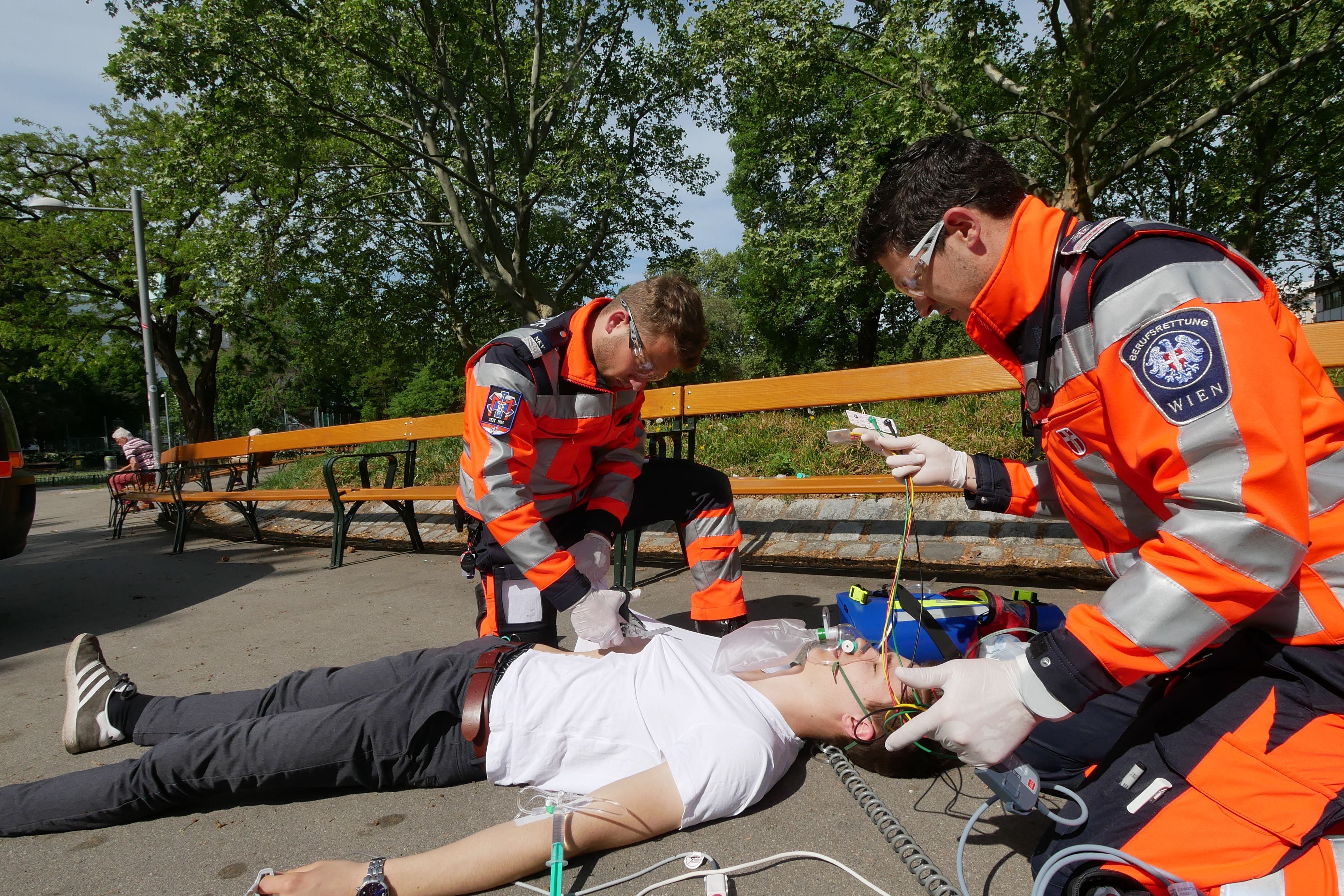
(Vienna, 10 November 2020) With the recently tightened COVID-19 restrictions, Vienna Emergency Services, MedUni Vienna and the Puls Association are calling for people to take heart attack symptoms seriously at all times and, under no circumstances, to put off taking action because of the coronavirus. "If a heart attack is suspected, the patient must go to hospital immediately; any delay can have serious consequences," warn the experts. A joint study now confirms that, although there was a drop in the number of patients with suspected heart attack taken to hospital at the start of the first wave of the pandemic, there was a dramatic increase in the percentage of patients presenting with signs of acute heart failure.
All over the world there have been reports of an unexplained drop in the incidence of patients presenting with a heart attack since the start of the COVID-19 pandemic. Even in Austria, there was an approximately 40% decline in hospital admission rates for heart attack patients during the first wave of the pandemic. It is hitherto unclear whether this drop is actually due to the restrictions and the associated reduction in physical stress coupled with a reduction in harmful environmental impacts (e.g. particulate loads) or to the fear of contracting COVID-19, so that the affected patients simply did not come forward immediately.
A study conducted by the Medical University of Vienna and Vienna Emergency Services now casts new light on these events. As part of an analysis conducted by Dr. Patrick Sulzgruber (Department of Medicine II, Division of Cardiology, Medical University of Vienna) and Dr. Mario Krammel (Senior Doctor at Vienna Emergency Services and executive President of Puls (Association for the Control of Sudden Cardiac Arrest)), heart-attack patients attended by Vienna Emergency Services before and during the first wave of the pandemic were analysed in terms of their clinical condition at the time of initial medical treatment.
Rise in critical cases
The study team led by Professor Alexander Niessner (Department of Medicine II, Division of Cardiology, Medical University of Vienna) found that, even in Vienna, there was a 42% drop in the number of heart-attack patients attended by the Emergency Services during the first wave of the pandemic. The most important and at the same time worrying outcome of the data analysis was that there was a dramatic rise in the number of heart-attack patients presenting with signs of acute heart failure and fatal cardiac arrhythmia during the observation period.
"Whereas, before the COVID-19 pandemic, the emergency teams of the City of Vienna Emergency Services were confronted by signs of acute heart failure in fewer than 7% of all heart attacks they attended, this number increased to 23.7% of all cases during the first wave of the pandemic – which represented a particular challenge for the Emergency Services in the Austrian capital, already stretched by the pandemic," says Krammel.
"It is worth highlighting that we observed a significant rise in the number of heart-attack patients with signs of acute heart failure presenting around two weeks after the incidence of heart-attack patients had started to decline. These findings suggest that, presumably out of fear of contacting COVID-19 in hospital, people who experienced symptoms of a heart attack only sought medical assistance at a very late stage, when they were already in a life-threatening condition," says Patrick Sulzgruber, who led the study.
Rapid assistance required
The Division of Cardiology of the Medical University of Vienna also reports that, with the recent rise in COVID-19 infection rates and the current restrictions, there is already a noticeable downturn in the number of heart-attack patients.
"In view of the current rapid increase in COVID-19 cases, it is important to raise public awareness about heart attack symptoms and to reassure them that they will receive safe treatment from the emergency services and hospitals in the event of emergencies during the COVID-19 pandemic, in order to prevent potentially avoidable collateral cardiovascular damage, as well as the associated long-term consequences for patients," says Professor Niessner. "The emergency services must be called without delay if people experience typical symptoms such as severe pain behind the breastbone, which lasts longer than 10 minutes and can radiate into an arm, the neck or abdomen, or a feeling of tightness or burning in the chest."
Once the Vienna study team's results have been checked by international experts, they will be released for publication and subsequently published in a renowned specialist journal of the European Society of Cardiology.
(Press release Vienna Emergency Services)